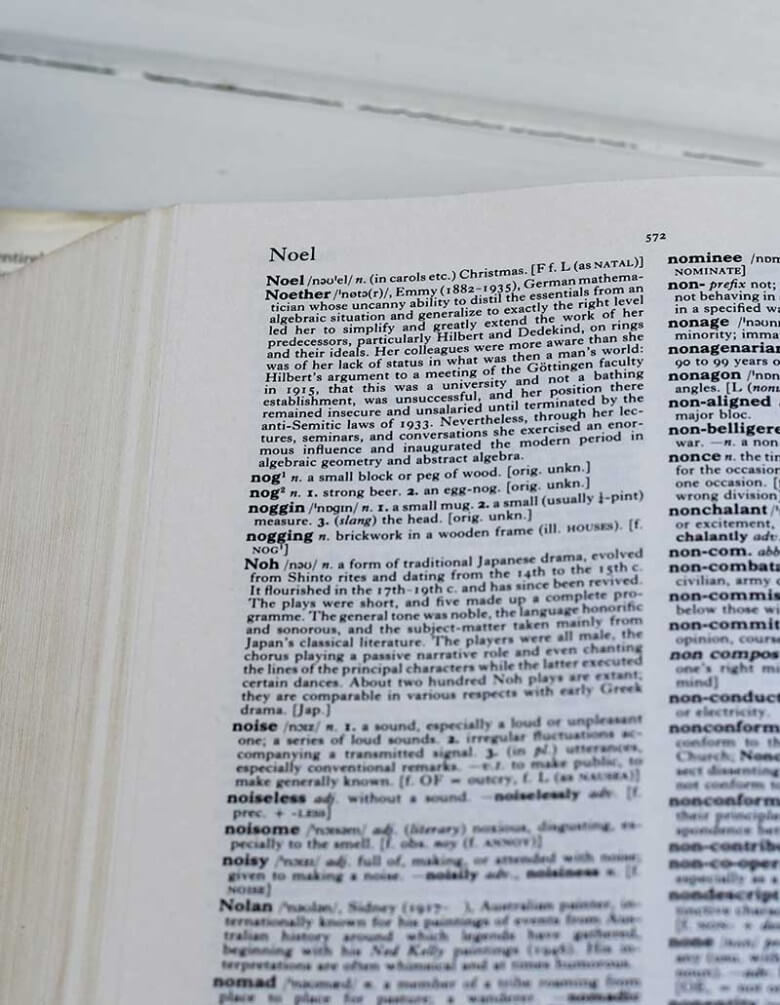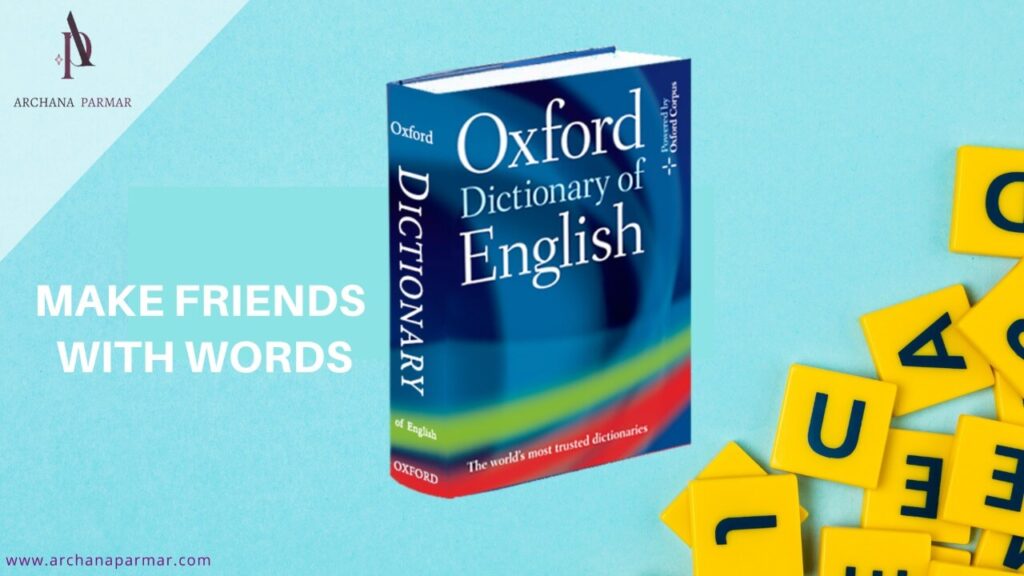Making friends with words!
Since a language is made up of thousands of individual words, it must be important to know about those words, and know in detail. The moment we meet a new word (it’s meaning), we think of a dictionary.
Dictionary is not just a guide full of words with their meanings.
– A reference book on a particular subject, the items of which are typically arranged in alphabetical order.
-a similar book giving equivalent words in two languages
-a work of informative character arranged alphabetically
That’s what we all believe it to be. Well it is more than that, much more than that.
A dictionary is one of the most effective, easily available, and reliable teaching aid in a language classroom. It helps us to learn about words-

In addition to these, dictionaries also provide the details about the origin or roots of words and examples of using the words.
The guide words – words given at the top of each page. The first guide word is the first word on a page and the guide word at the top of the page is the last word on the page. Using the guide words, you should find the word you are looking for easily. It will be between those words.

To be a good dictionary user, however, it is not enough to know what to use the dictionary for. You must also decide which is the best dictionary for any of the purposes mentioned above. As well as, you need to be able to find what you are looking for quickly; you need to be sure that you have found what you were looking for; and, most importantly, you need to know when to use your dictionary.
If you look up every new word you see or hear, you will spend your whole day with the dictionary in your hand. You have to be clever and choose the right words to check and the right time to do it.
The following advice can be followed to check when to use the dictionary.
- When you find a new word while reading, finish the sentence (better: the paragraph). If you haven’t guessed the meaning and it still seems important, then you can look it up.
- When you hear a new word, wait and continue listening. What the speaker says next may help you to understand the word.
- If you look in your dictionary at the very moment, you will not hear what comes next, and this will make understanding the context more and more difficult.
If you think the word is very important, you could note it down or write how you think it is spelled. Then later you could ask the speaker or look up in the dictionary to see what it means.
Meeting someone and knowing the words they spoke and their meanings are seldom enough, when communication skills are the most sought after skills in today’s world, depth and interaction are necessary if the meeting is to be meaningful. That’s where our word bank (vocabulary) comes into play.
Use dictionary as a medium for knowing the words and remember that words are not learnt mechanically, but associatively.
Dictionaries are readily available, flexible, and inexpensive, also UNDER-USED.
We expand our understanding of the word meanings by interchanging and sharing them with others. Learning words is a relational process.
Would you interested in learning more about vocabulary building?
Drop me a line at archana@archanaparmar.com or leave a comment.


Absolutely composed content, Really enjoyed looking at. Batsheva Ingram Venu
I feel so much happier now I understand all this. Thanks! Vale Adolf Indihar
excellent issues altogether, you just gained a new reader. Faustina Romeo Cato
Nam eget massa vel velit viverra pretium vel elementum purus. Mallory Rudolfo Lottie
It was actually amazing reading this and I think you are absolutely right. Let me know in case you are thinking about real followers, this is my primary competency. I hope to see you in the near future, take good care! Colly Kin Nimocks
Can we take it to the emails? archana@archanaparmar.com
Thanks so much for the blog. Really thank you! Really Cool. Eva Reinaldo Scrogan
You are always welcome!
Good day! I just would like to give you a big thumbs up for the excellent info you have right here on this post. I will be coming back to your site for more soon. Claudetta Edward Elison
Hey there. I found your web site by way of Google even as searching for a related matter, your web site got here up. It seems to be great. I have bookmarked it in my google bookmarks to visit then. Ailis Pattie Cho
I will immediately grab your rss feed as I can not to find your e-mail subscription link or e-newsletter service. Do you have any? Kindly allow me recognize in order that I may subscribe. Thanks.| Malinda Ase Veleda
Good catch. Even a small security bug can get down the entire system. #Embold finds such security vulnerabilities correctly & also Embold RE engine provides recommendations for how to fix it. Great work Team Embold ! Gertrudis Gawain Shirline
Everything is very open with a very clear explanation of the challenges. It was really informative. Your site is very helpful. Thanks for sharing! Bria Algernon Sandro
Do you mind if I quote a few of your posts as long as I provide credit and sources back to your site? My blog site is in the exact same area of interest as yours and my visitors would definitely benefit from a lot of the information you present here. Please let me know if this okay with you. Appreciate it! Agace Hal Roswell